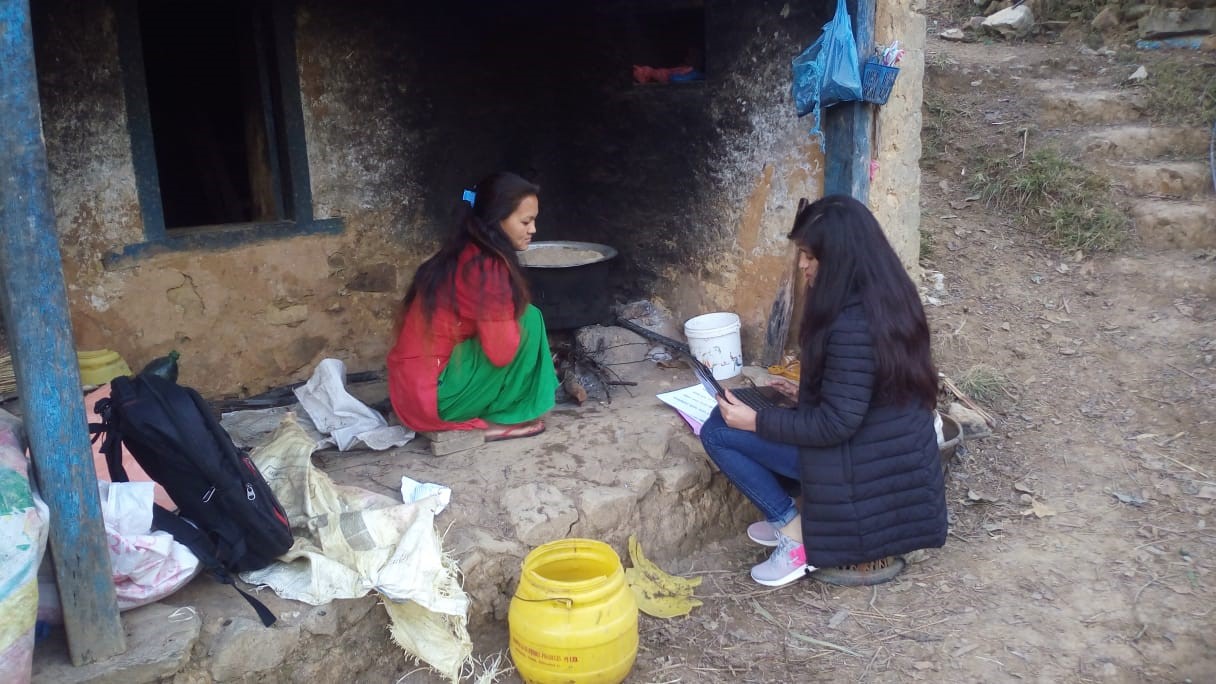Evidence-based approaches change health behaviors in Nepal
SHOPS Plus recently collaborated with Nepal CRS Company (CRS), a Nepalese social marketing organization and key USAID partner, on an endline knowledge, attitudes, and practices (KAP) survey evaluating the effectiveness of CRS’s social and behavior change program for rural populations. The endline demonstrated improvements across all three areas among rural participants. The survey results support CRS’s on-going efforts to increase access to health products and information using accurate and comprehensive data for decision-making.
Using evidence-based approaches for increased impact
A key aspect of SHOPS Plus’s mandate is working with CRS to generate and use data to inform decision making, including around intervention design and monitoring. To this end, SHOPS Plus conducted a qualitative assessment in 2017 identifying opportunities to strengthen the impact and reach of CRS’s rural outreach activities. Among the key findings, SHOPS Plus noted that CRS had not used metrics to prioritize areas where they would implement an intensive community-based social and behavior change program called the Remote Area Initiative (RAI). Consequently, CRS was not reaching the most rural and underserved populations in Nepal – the intended population for the intervention. After a review of key health indicators, SHOPS Plus and CRS jointly identified four remote districts with extremely limited access to health information and services and transitioned their focus to implementation in these high-need districts.

In 2018, SHOPS Plus collaborated with CRS on a baseline KAP survey to inform the redesign of a more intensive rural outreach program tailored to the specific health needs of targeted communities. The KAP baseline results found that community health practices differed significantly across the four newly selected districts. CRS used these findings to adapt its community outreach and training curriculum to each district, emphasizing different health topics based on community need. The endline KAP survey, completed in 2020, evaluated the effectiveness of the redesigned intervention.
Endline demonstrated substantial improvement in health knowledge, attitudes, and practices
One-third of respondents in intervention districts reported participating in the rural health promotion program since CRS launched the redesigned curriculum in 2018. This demonstrates substantial coverage in just two years of implementation. Moreover, among those who reported exposure to the program, 42 percent participated in three or more activities. The comparison of KAP baseline to endline results found key improvements in health knowledge and attitudes in the targeted districts, including hard-to-change cultural norms related to contraceptive use. For example:
- Perceived shopkeeper stigma when purchasing a contraceptive method decreased.
- A smaller percentage of women reported that their partners and in-laws were opposed to modern contraception use.
Respondents also demonstrated increased knowledge of diarrhea treatment and uterine prolapse prevention. The endline further revealed that several critical health practices increased, such as routine antenatal care visits and use of safe water treatment. For example:
- Among women who gave birth in the last three years, completion of four or more antenatal care visits increased by seven percentage points (71 to 78 percent) between baseline and endline surveys.
- Completion of four or more antenatal care visits was even higher among respondents who participated in at least three rural outreach activities (94 percent; a 23 percentage point increase).
Implications for future programming
The KAP endline found that many knowledge, attitudes, and practices indicators increased, which demonstrate important successes for CRS’s initiative. Across health topics, participation in multiple outreach activities was associated with greater improvement in health knowledge and practices. Still, barriers to health information, services, and products remain. For example, use of both oral rehydration salts and zinc among children who had diarrhea in the three months preceding the survey did not significantly change. CRS is eager to tackle areas of improvement identified in the KAP endline to inform future rural outreach programming.
A more detailed summary of KAP endline findings is accessible here. Additional information on how CRS and SHOPS Plus used baseline KAP findings to inform the evidence-based RAI curriculum is available here.